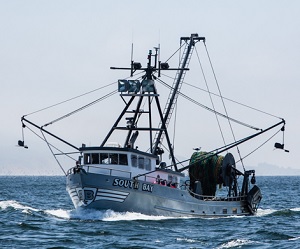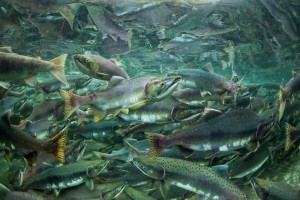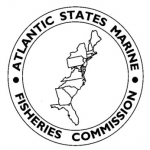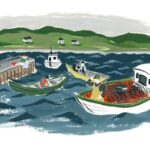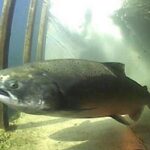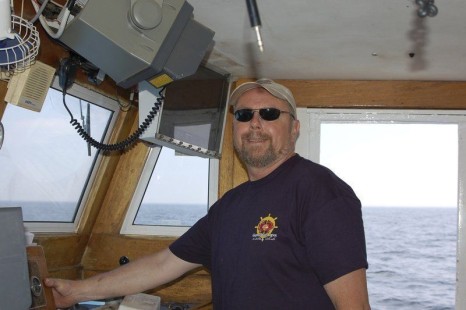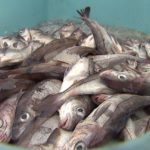Tag Archives: Proceedings of the National Academy of Sciences

Top Biden Climate Adviser Sanctioned by National Academy of Sciences for Ethical Violations
Jane Lubchenco, the deputy director for climate and environment at the White House’s Office of Science and Technology Policy, was sanctioned by the National Academy of Sciences (NAS) on August 8, Axios reported. Lubchenco’s sanction stemmed from a violation of the NAS’ code of conduct. Specifically, Lubchenco edited a paper that appeared in the NAS’ peer-reviewed journal, Proceedings of the National Academy of Sciences, in 2020; but the paper did not use the most recent available data, and Lubchenco had a personal relationship with one of the researchers in violation of the journal’s editorial policies. Axios adds that one of the researchers was Lubchenco’s brother-in-law. >click to read< 09:46

Retraction of flawed MPA study implicates larger problems in MPA science
A retraction is a Big Deal in science, especially from a prominent journal. What’s strange in this story is how the conflict of interest intersects with the science. The conflict of interest was apparent immediately upon publication, but it wasn’t until major problems in the underlying science were revealed that an investigation was launched, and the paper eventually retracted. But with increased press comes increased scrutiny. The critiques pointed out errors and impossible assumptions that strongly suggested the paper was inadequately peer reviewed. Proceedings of the National Academy of Sciences (PNAS) later determined that the person responsible for assigning Cabral et al.’s peer reviewers, Dr. Jane Lubchenco, had a conflict of interest. >click to read< 10:36
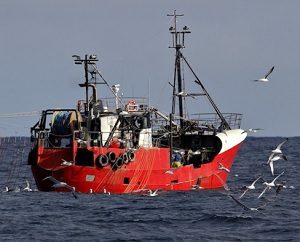
New England Fishing Communities Being Destroyed by ‘Climate Shocks’: Study
The climate crisis is hurting the New England fishing industry, claims a new report published Monday, with a decline of 16% in fishing jobs in the northeastern U.S. region from 1996 to 2017 and more instability ahead. University of Delaware researcher Kimberly Oremus’ paper, “Climate variability reduces employment in New England fisheries,” was published in the Proceedings of the National Academy of Sciences. >click to read< 10:28
New England fishermen losing jobs due to climate: study – While other studies have used temperature projections as a proxy for climate change, Oremus chose the North Atlantic Oscillation, a climate index based on the difference in sea-surface pressure between two points in the Atlantic Ocean—at the Azores and near Iceland. >click to read<
Use Property Rights to Save Fisheries Around the Globe, Says New Study – Who needs Science?!
 If nothing is done to reform open-access fisheries around the world, fishing stocks could drop by as much as 77 percent below current levels by 2050, reports a new study in the Proceedings of the National Academy of Sciences. If, however, property rights were assigned to individual fishers or communities, the yield trajectory of most of the world’s fisheries would shift sharply upward and most would recover biologically in only 10 years. These conclusions were reached by a team of researchers led by University of California, Santa Barbara environmental scientist Christopher Costello in their study, “Global fishing prospects under contrasting management regimes.” The Bean Counters. Read the article, Click here 08:18
If nothing is done to reform open-access fisheries around the world, fishing stocks could drop by as much as 77 percent below current levels by 2050, reports a new study in the Proceedings of the National Academy of Sciences. If, however, property rights were assigned to individual fishers or communities, the yield trajectory of most of the world’s fisheries would shift sharply upward and most would recover biologically in only 10 years. These conclusions were reached by a team of researchers led by University of California, Santa Barbara environmental scientist Christopher Costello in their study, “Global fishing prospects under contrasting management regimes.” The Bean Counters. Read the article, Click here 08:18
Canadian scientists find Fukushima fallout rising off West Coast
 Radioactivity from Japan’s crippled nuclear reactors has turned up off the British Columbia coast and the level will likely peak in waters off North America in the next year or two, says a Canadian-led team that’s intercepted the nuclear plume. The radioactivity “does not represent a threat to human health or the environment,” but is detectable off Canada’s west coast and is climbing, a team led by oceanographer John Smith at reported Monday in the Proceedings of the National Academy of Sciences. Read the rest here 11:02
Radioactivity from Japan’s crippled nuclear reactors has turned up off the British Columbia coast and the level will likely peak in waters off North America in the next year or two, says a Canadian-led team that’s intercepted the nuclear plume. The radioactivity “does not represent a threat to human health or the environment,” but is detectable off Canada’s west coast and is climbing, a team led by oceanographer John Smith at reported Monday in the Proceedings of the National Academy of Sciences. Read the rest here 11:02
New Minnesota environmental law bans triclosan
 A University of Minnesota study published in January 2013 in the journal Environmental Science and Technology said increasing amounts of triclosan were found in the sediment in eight Minnesota lakes and rivers, including Lake Superior, the Duluth harbor, Shagawa Lake in Ely, Lake Pepin, Lake St. Croix, Lake Winona and East Lake Gemini, all of which receive treated sewage effluent. Read more here 12:11
A University of Minnesota study published in January 2013 in the journal Environmental Science and Technology said increasing amounts of triclosan were found in the sediment in eight Minnesota lakes and rivers, including Lake Superior, the Duluth harbor, Shagawa Lake in Ely, Lake Pepin, Lake St. Croix, Lake Winona and East Lake Gemini, all of which receive treated sewage effluent. Read more here 12:11
Too Many Salmon in the Sea, Pacific Study Hints – Burgeoning numbers of pink salmon may threaten the food supply of young seabirds.
 Tied to rising ocean temperatures in the Bering Sea and North Pacific that spurred the growth of the prey of salmon and seabirds alike, the “much larger than previously known” impact of pink salmon is reported in a new Proceedings of the National Academy of Sciences report. Read more here 17:32
Tied to rising ocean temperatures in the Bering Sea and North Pacific that spurred the growth of the prey of salmon and seabirds alike, the “much larger than previously known” impact of pink salmon is reported in a new Proceedings of the National Academy of Sciences report. Read more here 17:32
Study: Alaska salmon stocks spiked and crashed long before commercial fishing
ANCHORAGE — A new study presents evidence that salmon populations in Bristol Bay have surged and sagged wildly — for hundreds of years at a time — well before the first commercial fishing in Alaska. The research, published this month in the online edition of the Proceedings of the National Academy of Sciences, summarized data collected and analyzed over the past 15 years by scientists in the U.S., Canada, Norway and China. Read more here






